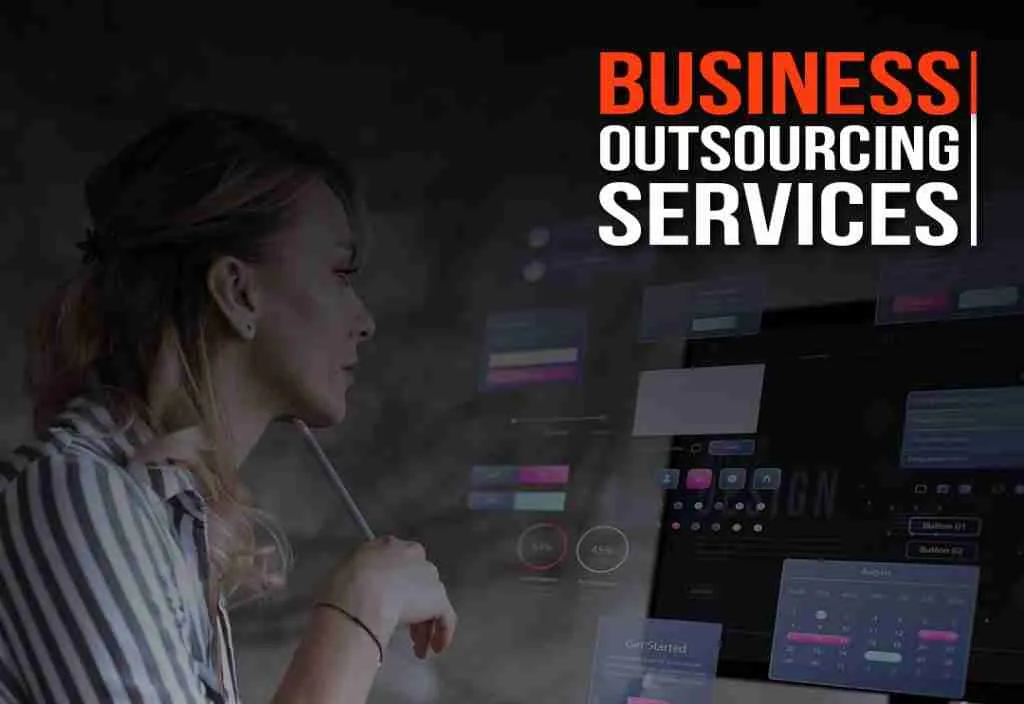You don’t just need tech support. You need someone who speaks business and tech fluently. Every growing company reaches a point where technology becomes more than just a tool, it becomes the backbone of operations. That time, business needs more than a help desk; they need Technical Account Management services (TAMS).
A Technical Account Manager (TAM) acts as the bridge between your company’s goals and the technology that powers them. From strategic guidance to hands-on troubleshooting, technical account managers are the backstage heroes ensuring your IT infrastructure doesn’t just work, but works for you.
But what exactly is technical account management? And more importantly, should you manage it in-house, or outsource these services to the pros?

What Are Technical Account Management Services?
Technical Account Management services are a personalized support service designed for businesses that require ongoing technical oversight, proactive planning, and expert guidance. It goes beyond reactive tech support; TAMs are involved in understanding your business objectives and ensuring that your tech stack aligns perfectly with them.
Whether you’re deploying a complex cloud infrastructure, managing cybersecurity, or scaling a SaaS product, a TAM ensures you’re not just maintaining systems, but optimizing them.
What Does a Technical Account Manager Do?
Think of a Technical Account Manager (TAM) as your business’s personal tech translator, problem-solver, and strategic guide, all rolled into one. While your engineers build and your sales team closes deals, the TAM is behind the scenes making sure your tech infrastructure doesn’t just keep up, it stays ahead.
- Understand Your Business Inside Out: A TAM doesn’t just care about code, they care about context. They take the time to understand your company’s goals, pain points, industry landscape, and how your tech supports it all. Whether you’re scaling, pivoting, or launching something new, they align your IT strategy with your business direction.
- Manage and Optimize Tech Environments: From cloud migrations to server integrations, TAMs handle the nitty-gritty technical stuff. They ensure everything works smoothly, stays updated, and doesn’t become a bottleneck during crunch time. Think of them as a project manager with deep tech chops.
- Bridge the Gap Between Teams: Developers speak code. Executives speak ROI. Technical account managers? They speak both. They serve as the communication glue between your internal departments, vendors, and external partners, ensuring everyone is on the same page.
- Prevent Issues Before They Happen: The Technical account management team of an organization acts like a fire marshal. Through regular health checks, system audits, and proactive risk assessments, they spot potential problems and fix them before they even become your business disasters.
- Provide Strategic Insights: They don’t just support, they advise you for better business functions. By tracking KPIs, performing data analysis, and following industry best practices. In short, technical account managers help you make smarter decisions, from budget planning to tool selections.
- Ensure Compliance and Security: We live in a data-driven world, where one slip-up can lead to lawsuits or lost trust. Therefore, the technical account management team makes sure your systems meet regulatory standards and stay secure from cyber threats.
List of Benefits of Technical Account Management Services
Hiring or outsourcing technical account management isn’t just a “nice to have”; it’s a game-changer for companies that rely on technology (read: almost everyone). Here’s why businesses of all sizes are leaning into these services:
- Faster Problem Resolution: With a TAM in your corner, you won’t be waiting on generic support queues. You get priority-level troubleshooting by someone who already knows your system inside and out, leading to faster fixes and less downtime.
- Performance That Performs: Technical account managers constantly monitor and fine-tune your infrastructure to ensure it’s not just functioning, but functioning at its best. That means optimized workflows, fewer delays, and better user experiences across the board.
- One Point of Contact = Less Chaos: No more bouncing between five different support teams. A TAM becomes your single, dedicated point of contact for all things technical. You know who to call, and they know exactly how to help.
- Strategic Tech Planning: A great TAM helps you think beyond today. They offer strategic roadmaps for scaling, budgeting, new integrations, and industry trends, so you’re always a step ahead of the curve.
- Cost Efficiency: Downtime is expensive. Poor tech choices? Even more so. The technical account management team helps you avoid costly mistakes, reduce waste, and get the most out of your software, hardware, and support contracts.
- Enhanced Data Security & Compliance: From daily backups to disaster recovery plans and staying compliant with ever-changing regulations, TAMs keep your business protected and legally sound.
- Stronger Vendor Relationships: Need to escalate an issue with AWS or get better terms with a software provider? A TAM knows the right people and speaks the right language to get things moving quickly.
Why Should You Outsource Technical Account Management Services?
There are plenty of reasons to outsource TAMs for your business to take it to the next level-
- Access to Top-Tier Talent: Outsourcing gives you instant access to highly skilled technical account managers who’ve handled complex systems across industries. These are not just IT professionals, but experts trained to align technology with business strategy, and they bring experience that would take years to develop in-house. I mean, why train someone for months when you can outsource the expert team?
- Reduced Operational Costs: Hiring a full-time TAM means salary, benefits, training, and onboarding, and not to mention tools and infrastructure. On the other hand, outsourcing removes all that overhead. In short, you only pay what you need, making it a cost-effective choice, especially for startups and growing companies.
- Faster Implementation and Onboarding: An Outsourced technical account management team is ready to jump in. They are trained, certified, and often already familiar with the platform you use. In short, easy onboarding, smoother rollouts, and less downtime.
- Flexible Scalability: Business picking up? Do you need more support during product launch or service migration? Thus, outsourced TAMs are built for scale. So, whether you need part-time help or full-time coverage, outsourcing gives you the flexibility to adjust without hiring or letting people go.
Top Drawbacks of Outsourcing with Technical Account Managers
Outsourcing technical account management services can be a smart, scalable move, but let’s keep it real: it’s not without its challenges. While it brings flexibility and access to expertise, there are a few potential downsides you should be aware of before leaping.
- Less Control Over Day-to-Day Operations: When you outsource, your TAM isn’t sitting in the same office or Slack channel. That can sometimes create a sense of distance from your internal processes. You may have less influence over how things are prioritized or executed in real time. It matters because if your organization thrives on close-knit, rapid collaboration, this might feel like a hurdle, especially during high-stakes projects or emergencies.
- Time Zone & Communication Gaps: Working with external teams often means dealing with different time zones, work cultures, or communication styles. Even the best outsourced TAMs may not be immediately available when something unexpected happens, unless 24/7 support is part of the deal. It matters because delays in response time or miscommunication can slow down issue resolution, especially if clear agreements aren’t in place.
- Learning Curve with Internal Systems: Even the most experienced TAM needs time to understand your unique setup, your tools, your team dynamics, and your business goals. With an outsourced partner, this learning process can take longer than with someone in-house. A TAM who’s unfamiliar with your internal workflows may take time to deliver the full value you’re looking for, especially early in the engagement.
- Data Privacy & Security Risks: Outsourcing often requires granting third-party access to sensitive systems, data, or infrastructure. And while most professional vendors have strong security policies in place, you’re still adding a layer of risk. It matters because if not managed properly with strict contracts, NDAs, and access controls, your business could face potential data breaches or compliance issues.
How to Outsource Technical Account Management Services in 2025?
- Start With Clarity, Not Guesswork: Before you even Google your first provider, take a pause and define exactly what you need. Are you looking for ongoing support, a project-based relationship, or strategic consultation? What tools do you use? What kind of challenges are recurring in your tech stack? When you’re clear on your needs, it’s much easier to filter through potential partners and avoid wasting time on those that don’t align.
- Choose Experts, Not Just Vendors: Not all service providers are equal. In 2025, outsourcing platforms are flooded with IT firms, but you need one that specializes in technical account management. Look for a provider with industry-specific experience, strong client reviews, and the kind of certifications that prove they know their stuff. Think long-term partnership, not a quick fix.
- Have Real Conversations Before You Commit: Once you’ve shortlisted a few candidates, set up actual conversations. Discovery calls are your chance to feel out how they work, how they think, and how well they understand your business model. This is where culture fit, communication style, and expertise become very clear. Don’t skip it and come prepared with real scenarios to test their thinking.
- Compare More Than Just the Price Tag: Proposals will start landing in your inbox, and it’s tempting to go straight to the numbers. But take a closer look at the scope of work, deliverables, and communication structure. What kind of onboarding do they provide? How often will you hear from them? What tools will they use to stay in sync with your team? The right choice isn’t the cheapest, it’s the one that offers the most value.
- Set the Rules Before the Game Starts: Before signing on the dotted line, make sure your agreement is airtight. It should define responsibilities, response times, data security protocols, and exit options. A well-written agreement removes ambiguity, protects both sides, and prevents surprises when you’re knee-deep in a crisis.
- Launch With Intention: Onboarding is everything. Once your TAM is onboard, introduce them to your team, share key documentation, and set expectations for the first few weeks. This phase lays the foundation for everything that follows. In 2025, a smooth virtual onboarding can make your TAM feel like part of your team from day one, even if they’re in a different time zone.
- Keep the Pulse, Don’t Just Set and Forget: Outsourcing doesn’t mean disconnecting. Monitor how things are going, weekly performance, communication flow, ticket resolution, and strategic inputs. If the partnership is thriving, great. If something’s off, speak up and refine the setup.
Conclusion
Your business deserves more than generic support. It needs a technical account manager who understands your systems, your strategy, and your goals, and knows how to bring them all together.
Whether you’re launching a new product, expanding your digital infrastructure, or just tired of putting out IT fires, technical account management services offer the structure and strategy your tech stack has been missing.
And if building an in-house team isn’t part of your current plan? Outsourcing technical account management services gives you instant access to high-level expertise, flexible support, and performance that performs.
Ready to level up your tech game? Partner with an experienced Outsourcing Buddy team and transform the way your business handles technology, strategically, efficiently, and securely.
Top Frequently Asked Questions by Users
Question: What does a technical account manager do on a daily basis?
Answer: A technical account manager monitors system performance, resolves technical issues, collaborates with internal and external teams, ensures compliance, and provides ongoing strategic guidance tailored to the business’s needs.
Question: How is technical account management different from regular IT support?
Answer: Traditional IT support is reactive, fixing things when they break. Technical account management is proactive and strategic; it focuses on long-term planning, system optimization, and aligning tech with business objectives.
Question: Which businesses need technical account management services?
Answer: Any business that relies heavily on technology, especially those in SaaS, finance, healthcare, eCommerce, or enterprise software, can benefit from technical account management services to improve efficiency and reduce risk.
Question: Can technical account managers work with third-party vendors?
Answer: Yes! A TAM often coordinates with third-party vendors, ensuring smooth integrations, resolving escalations, managing SLAs, and keeping all parties aligned with your tech goals.
Question: What are the benefits of outsourcing technical account management services?
Answer: Outsourcing offers flexibility, access to top talent, quicker implementation, 24/7 support, and allows your internal team to focus on core priorities while experts handle the tech side.


